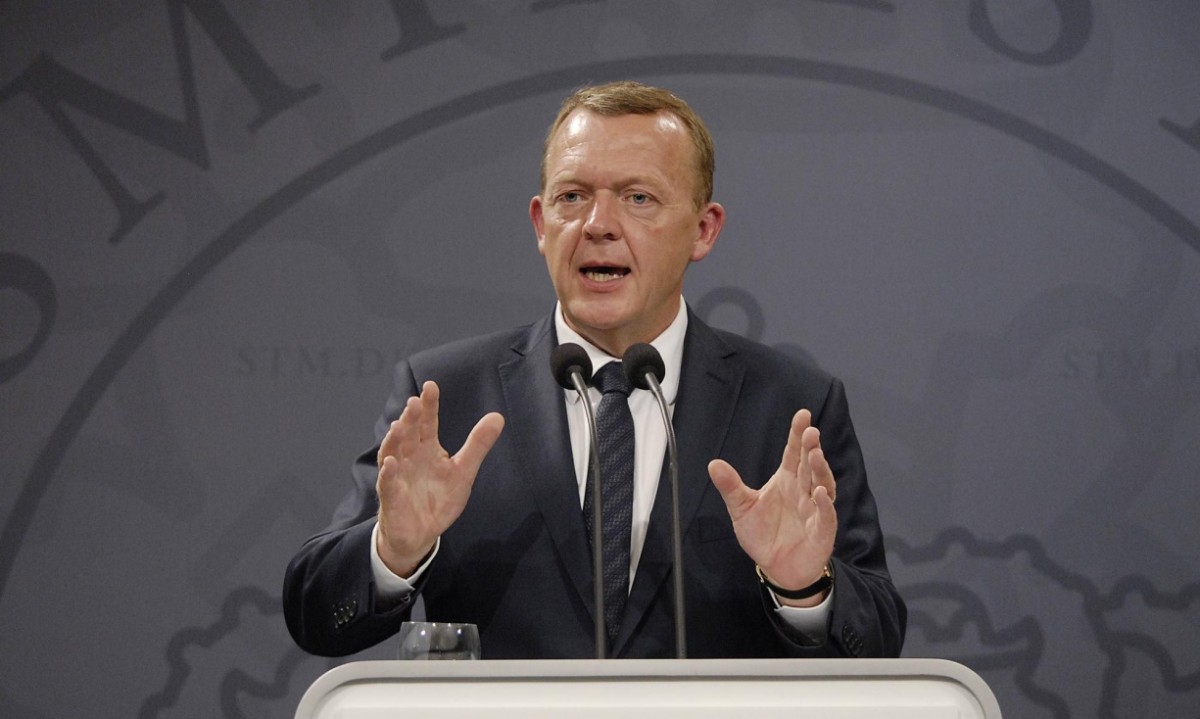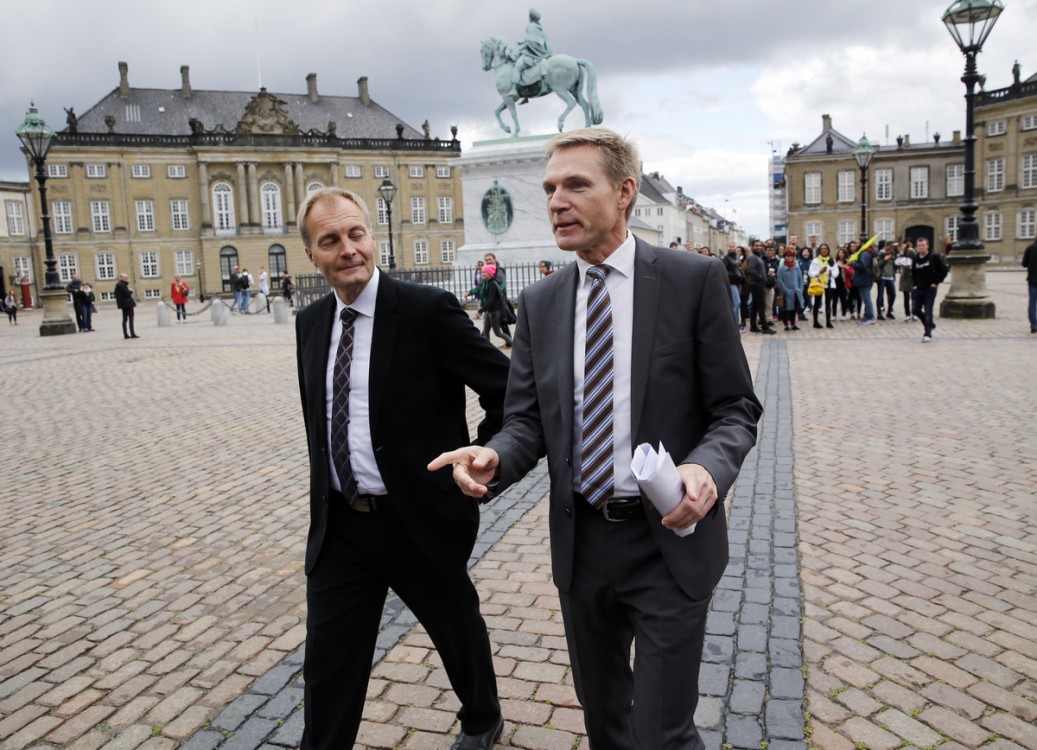
Denmark is known for its advanced green technology, not least wind power: In 2015, 42 percent of Denmark´s electricity consumption came from wind. At one peak, wind turbines produced a staggering 140 percent of the country's total electricity, enabling it to export the surplus. Wind technology and green energy solutions are, not surprisingly, big business – in fact, the fastest growing business – for the small Scandinavian country.
This leading role is now, however, being challenged by the current right-wing Venstre party government. Since Venstre (which ironically means “left”) along with the support of three satellite parties came to power a year ago, it has actively set back or directly countered Denmark´s environmental protections and efforts against climate changes. This is despite the wealth of green technology exports, protests from the public, and warnings from opposition parties and influential green organizations.
Halting the Green Advance
So what exactly has the Danish government done to stymie green technology and business? Most currently, it is trying to change an important fee on electricity, which is part of the financing mechanism that has allowed the country's wind energy to expand. The government has stated its intention to either remove the fee completely or replace it by raising the bottom tax line. This would negatively affect low-income Danes the most, since energy consuming companies will have their part of the fees paid for by Danish taxpayers instead of paying for their own consumption as the law stands now. Simultaneously, the government wants to lower the progressive tax that only the high income Danes are paying.
The move to costs on expanding otherwise profitable wind energy has been halting the construction of large sea wind turbines – sparking widespread criticism from green movements and the opposition.
“The government's priorities are black as coal when it moves the priorities away from the green transition. If it will drop the coastal wind turbines, it is a severe intervention against the energy agreement (which the party Venstre itself has signed) and a green Denmark,” said Pia Olsen Dyhr, leader of the opposition party SF.
Another opposition politician, Martin Lidegaard, from Radikale Venstre, said, “The government is gambling with Denmark's green lead position, [which] weakens Denmark's credibility in the world where countries such as Mexico, South Africa and China are trying to copy the Danish model. It also damages our reputation among the companies bidding for renewable energy. This is banana-state behavior, and it does not belong here.”
Lidegaard argued that Denmark's green model is being replicated by a range of countries because of its success, while the Danish government is tearing down Denmark's own model. While the changes are currently up for debate among the government and its supporting parties, Venstre has already changed several plans that were intended to enhance renewable energy.
For one, it has abolished Denmark´s 2020 goal of reducing the CO2 emissions 40 percent by 2005 measures. It has also rolled back an ambitious goal to power Denmark with 100% renewable energy by 2050. In addition, the government declared a halt to the phaseout of coal power, and stopped an air quality initiative that was supposed to improve public transportation in the capital Copenhagen.
Meanwhile, taxes have been imposed on electric cars, while green taxes have been lowered on the biggest and most polluting cars. The government has announced that it wants to halt or severely cut funding to a separate large-scale initiative to improve public transportation nationwide funded by higher oil taxes. The comprehensive expansion was supposed to give better and faster train services, convert diesel trains to electric powered ones, lower the number of cars on the roads and generally improve public transit. The government has argued that with low oil prices, there is no longer money to improve the country's green infrastructure.
“Green Realism”
As the government has changed one progressive law after the next and sliced funding for climate, environmental and public transit sectors, it has done so under the slogan of “Green realism.” Beside slowing down Denmark's climate actions, the government has lowered environmental regulation for industries as well. In terms of the climate fight, the government argues that Denmark is already doing too much.
”Venstre wants green realism in the energy policy, so that the ends and means meet each other. We must be ambitious without us [putting ourselves] so far ahead of the field that the other countries will lose sight of us,” Energy and Climate Minister Lars Christian Lilleholt told the Danish newspaper Politiken. The government has generally argued that climate and environment must newer come before growth and job creation. Cuts to environmental protection as well as cuts in other green sectors is instead said to “streamline” business and make sectors “more efficient.”
More Money to the Polluters
Denmark's Ministry of Environment started subsidizing the agricultural industry as a compromise for previous environmental regulations it put in place. Meanwhile, the agricultural industry has been allowed to spray more manure and pesticides while revising regulations about where it can spray. Scientists have warned that this endangers decades of successful environmental protection of water quality and wildlife habitats, and that the increased pollution is likely to affect humans as well the natural ecosystem.
Recently, the Minister of Environment and Food, Eva Kjer Hansen, was forced to leave office when the media exposed her history of being controlled by the agricultural lobby. Public coastal environments and nature sites have been privatized to construct water parks, hotels and make room for other investments. A fund for green innovation has lost funding. And the list goes on.
The last time Venstre was in government, from 2001 to 2011, it also cut back on climate and environment. Back then, the former prime minister and climate change skeptic Anders Fogh Rasmussen – who later became general secretary of NATO, a PR consultant for Goldman Sachs, and now serves as a security advisor for the Ukrainian president – said, “There is not a frog, not a bird, not a fish that is worse off as a result of the government's environmental policy.”
Rasmussen later changed his mind, not least regarding his skepticism on climate change. He later said in a speech: “It will be very costly for mankind and nature to not act. We must make Denmark completely free of fossil fuels [such] as oil, coal and gas and create a green growth economy. My view is that when mankind can put a man on the moon, mankind can also create an economy which is not dependent on fossil fuels as we are today. And that is exactly what we need to set as [our] goal.”
Despite the former leader's change of mind, somehow the message hasn't stuck. And his party is still on a path as black as coal.
3 WAYS TO SHOW YOUR SUPPORT
- Log in to post comments














Comments
B. Bailey replied on
Greed - pure evil on the part of the Vestre party
No doubt, they're in the pockets of the extractive industry, the global banking cartel, and the plutocracy/oligarchy and bribed with big money. Hold firm, Denmark! Get rid of these corrupt people.